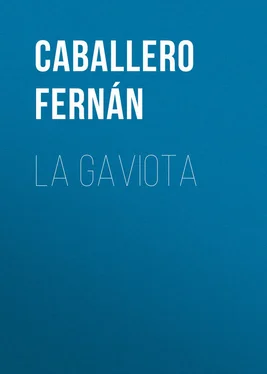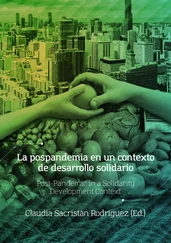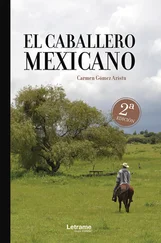Fernán Caballero - La Gaviota
Здесь есть возможность читать онлайн «Fernán Caballero - La Gaviota» — ознакомительный отрывок электронной книги совершенно бесплатно, а после прочтения отрывка купить полную версию. В некоторых случаях можно слушать аудио, скачать через торрент в формате fb2 и присутствует краткое содержание. Жанр: foreign_antique, foreign_prose, на английском языке. Описание произведения, (предисловие) а так же отзывы посетителей доступны на портале библиотеки ЛибКат.
- Название:La Gaviota
- Автор:
- Жанр:
- Год:неизвестен
- ISBN:нет данных
- Рейтинг книги:3 / 5. Голосов: 1
-
Избранное:Добавить в избранное
- Отзывы:
-
Ваша оценка:
- 60
- 1
- 2
- 3
- 4
- 5
La Gaviota: краткое содержание, описание и аннотация
Предлагаем к чтению аннотацию, описание, краткое содержание или предисловие (зависит от того, что написал сам автор книги «La Gaviota»). Если вы не нашли необходимую информацию о книге — напишите в комментариях, мы постараемся отыскать её.
La Gaviota — читать онлайн ознакомительный отрывок
Ниже представлен текст книги, разбитый по страницам. Система сохранения места последней прочитанной страницы, позволяет с удобством читать онлайн бесплатно книгу «La Gaviota», без необходимости каждый раз заново искать на чём Вы остановились. Поставьте закладку, и сможете в любой момент перейти на страницу, на которой закончили чтение.
Интервал:
Закладка:
After the funeral, the nine days of mourning passed, the Señorita Rosita said one morning to Don Modesto: “I regret much, señor, the duty of announcing to you that we must separate.”
“We part!” cried the brave man, opening his large eyes, and placing his cup of chocolate on the table-cloth, instead of placing it on the tray. “And why, Rosita?”
Don Modesto was accustomed, during thirty years, to employ this pet name when he spoke to the daughter of his old hostess.
“It seems to me,” she replied, elevating her eyelids, “it seems to me you need not ask me why. You know it is not proper that two honest persons live together under the same roof. It gives rise to scandal.”
“And who could bring scandal against you?” replied Don Modesto; “you, the village model!”
“Are you sure there will not be something? What will you say when you learn that you yourself, despite your great age, your uniform, and your cross, and I, a poor girl who thinks only of serving God, that we afford amusement to these scandal-mongers?”
“What say you?” demanded Don Modesto, saddened.
“What you have just heard. And no one knows us but under nicknames which they apply to us, these cursed!”
“I am stunned, Rosita. I cannot believe – ”
“So much the better for you if you do not believe it,” said the devout girl; “but I avow to you that these impious ones, – God pardon them! – when they see us arrive together at the church, at the early morning mass, they say, one to the other: ‘Sound the mass, here come the Mystic Rose and the Tower of David , in armor and in company, as in the litanies.’ They have thus dubbed you, because your figure is so erect, so tall, and so solid.”
Don Modesto remained, his mouth open, and his eyes fixed on the ground.
“Yes, señor,” continued the Mystic Rose; “the neighbor who told me this was scandalized, and advised me to go and complain to the cura. I replied to her it were better that I restrained myself, and suffered. Our Lord suffered more than I, without complaining.”
“Well!” said Modesto; “I will not permit that they mock me, and still less you.”
“The best will be,” continued Rosa, “to prove by our patience that we are good Christians, and by our indifference that we care little for the world’s opinion. Beyond this, if these wicked persons are punished, they will be worse, believe me, Don Modesto.”
“You are, as always, right, Rosita. I know these babblers; if you cut out their tongue, they will speak with their nose. But if, in by-gone days, any of my comrades had dared to call me Tower of David , he would have had to add, ‘Pray for us!’ How is it that you, a saint, have any fear of these slanders?”
“You know, Don Modesto, what say the vulgar, who think evil of all the world: ‘Between saint and saint there should be a strong wall.’ ”
“But between you and I there is no need of a wall. I am old, and never in all my life was I ever, except once, in love; and then it was with a very pretty young girl, whom I would have married, if I had not surprised her in a counter-flirtation with the drum-major, who – ”
“Don Modesto!” cried Rosita, choked with this discourse. “Honor your name and your position, and abandon your souvenirs of love.”
“My intention was not to offend you,” replied Don Modesto, in a contrite tone. “Know that well; and I swear to you that I never had, and never will have, an evil thought.”
“Don Modesto,” replied Rosa, with impatience (she looked on him with her eye of fire, while the other eye made vain efforts in the hope of being inflamed in unison), “do you judge me so simple as to think that two persons, like you and I, having both the fear of God, could conduct ourselves like those hair-brained people who have neither shame nor horror of sin? But in the world it is not sufficient to do well. We must even not give cause for scandal, and guard on all sides even against appearances.”
“That is another thing,” replied the commandant. “What appearances can there be between us? Do you not know that they who excuse, accuse themselves?”
“I tell you,” replied the devotee, “there will not be wanting persons to blame us.”
“And what can I do without you?” demanded Don Modesto, afflicted. “Alone in the world, what can you do without me?”
“He who gives food to the little birds,” said Rosita, in a solemn tone, “will take care of those who trust in Him.”
Don Modesto, disconcerted, and knowing not what further to say, went to consult with the cura, who was at the same time his friend and Rosita’s.
The cura persuaded the good girl that her scruples were exaggerated, and her fears without reason; that the projected separation would much more give rise to ridiculous comments.
They continued then to live together, as formerly, in peace, and in the fear of God; – the commandant always good and useful; Rosa always careful, attentive, and disinterested: because, on the one hand, Don Modesto was not the man to take any recompense for his services; and, on the other, if the handle of his gala-sword had not been silver, she could well have forgotten the color of that metal.
CHAPTER VI
WHEN Stein returned to the convent, all the family were assembled in the court. Momo and Manuel arrived at the same time, each from his direction. The last had been going his rounds of the farm in the exercise of his functions as gamekeeper; he held his gun in one hand, and in the other three partridges and two hares.
The children ran to Momo, who at once emptied his wallet, from which escaped, as from a horn of abundance, a multitude of winter fruits, which, according to Spanish custom, served to celebrate All Saints’ Eve; viz., nuts, chestnuts, and pomegranates.
“If Marisalada brings us the fish,” said the eldest of the little girls, “to-morrow we will have a famous feast.”
“To-morrow,” said Maria, “is All Saints; father Pedro will certainly not go out to fish.”
“Then,” said the little one, “it will be for the next day.”
“They no longer fish on the ‘Dia de los Difuntos.’ ”
“And why?” demanded the child.
“Because it would be to profane a day which the church consecrates to sanctified souls. The proof is, that the fishermen having once cast their lines on such a day, and delighted with the weight they were drawing in, were doomed to find only snakes instead of fish. Is it not true, brother Gabriel?”
“I did not see it, but I am sure of it,” replied the brother.
“And is it for that you make us pray so much on the ‘day of the dead?’ ” asked the little girl.
“For that same,” said the grandma; “it is a holy custom, and God is not willing that we should ever neglect it.”
“Certainly,” added Manuel, “nothing is more just than to pray to the Lord for the dead; and I remember a fellow of the Congregation of Souls who begged for them in these terms, at the door of the chapel: ‘He who places a small piece of money in this place, withdraws a soul from purgatory.’ There came along a wag who, after having deposited his piece: ‘Tell me, brother,’ asked he, ‘do you believe the soul is yet clear of purgatory?’ ‘Do you doubt it?’ replied the brother. ‘In that case,’ replied the other, ‘I take back my piece; I know this soul; she is not such a fool as to go back when she is once out.’ ”
“You may be assured, Don Frederico,” said Maria, “that with every thing, good or bad, my son finds always something appropriate to a story, a witticism, or a bon-mot .”
At this moment Don Modesto entered by the court; he was as stiff and grave as when he was presented to Stein at the end of the village. The only change was, that he carried suspended to his stick a large stock of fish covered over with cabbage leaves.
Читать дальшеИнтервал:
Закладка:
Похожие книги на «La Gaviota»
Представляем Вашему вниманию похожие книги на «La Gaviota» списком для выбора. Мы отобрали схожую по названию и смыслу литературу в надежде предоставить читателям больше вариантов отыскать новые, интересные, ещё непрочитанные произведения.
Обсуждение, отзывы о книге «La Gaviota» и просто собственные мнения читателей. Оставьте ваши комментарии, напишите, что Вы думаете о произведении, его смысле или главных героях. Укажите что конкретно понравилось, а что нет, и почему Вы так считаете.











